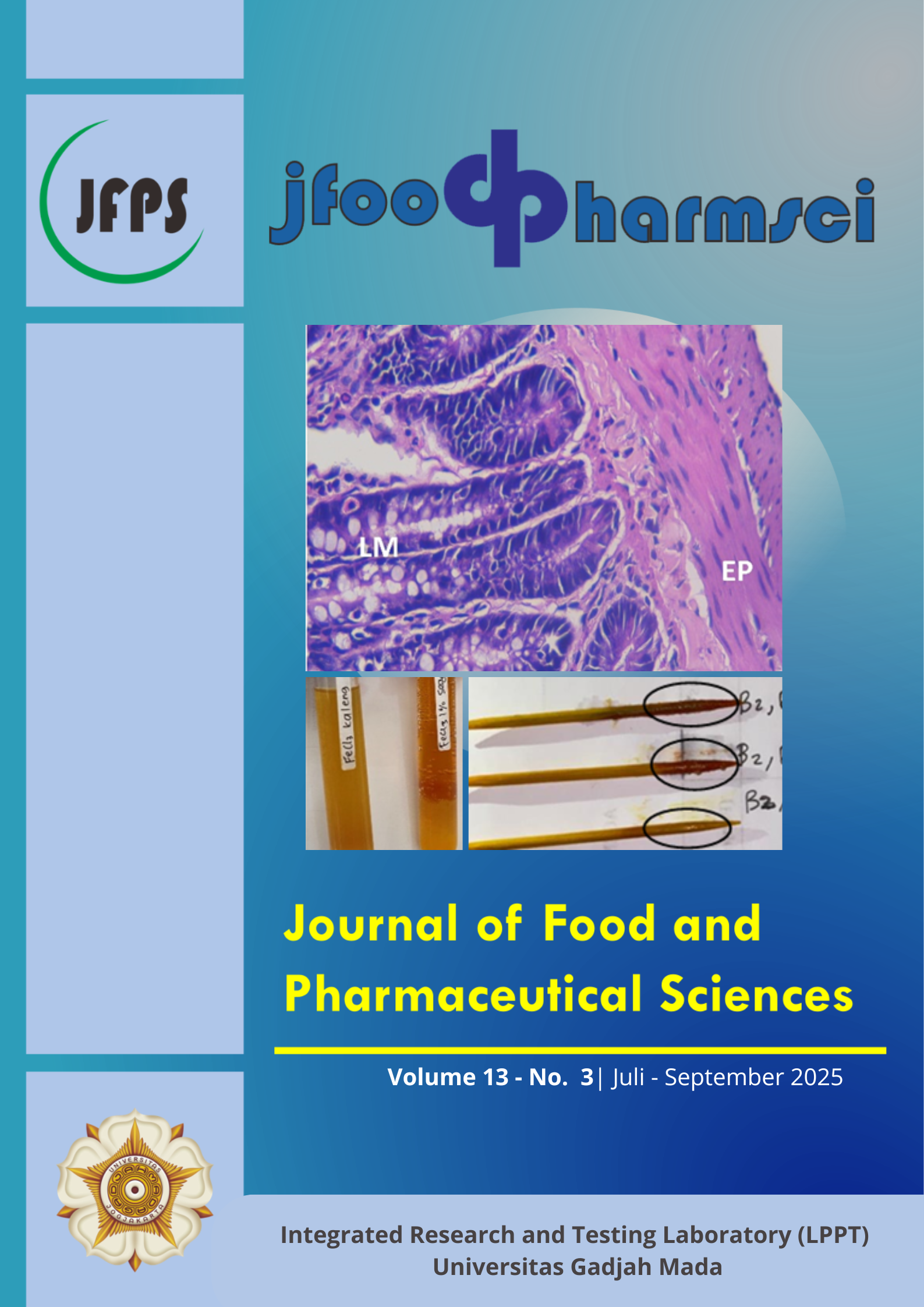Quercetin Isolation Methods from Various Plant Samples by Traditional Extraction Method, Microwave, and Ultrasonic Assisted Extraction Techniques: A Review
Abstract
Free radicals are highly reactive atoms with unpaired electrons, produced by factors like radiation, pollution, and poor diet, causing oxidative stress and cell damage. Antioxidants counteract these effects, with natural ones like flavonoids being safer than synthetic types. Quercetin, a flavonoid found in various plants, has strong antioxidant, anti-inflammatory, and anticancer properties due to its hydroxyl groups. This review compiles recent studies on plants containing quercetin, isolation methods, and analytical instruments used in the process. Research was sourced from Google Scholar and PubMed, focusing on Scopus, SINTA, and Google Scholar-indexed journals from 2014-2024. Articles selected were in English or Indonesian, had full-text access, and reported total quercetin content. Quercetin is found in tamarind, basil, guava, and moringa leaves, cabbage, Dutch Eggplant Peel, red beans, propolis, Fenugreek Seeds, Melastoma sanguineum Sims fruits, Flos Sophorae Immaturus, and mangkokan. Isolation techniques include maceration, Soxhlet, Ultrasound-Assisted Extraction (UAE), Microwave-Assisted Extraction (MAE), and a combination of both (MUAE), with ethanol, acetone, and methanol commonly used as solvents. For quantifying quercetin, instruments like High-Performance Liquid Chromatography (HPLC), UV-Vis Spectrophotometry, and Mass Spectrometry (MS) are employed.














